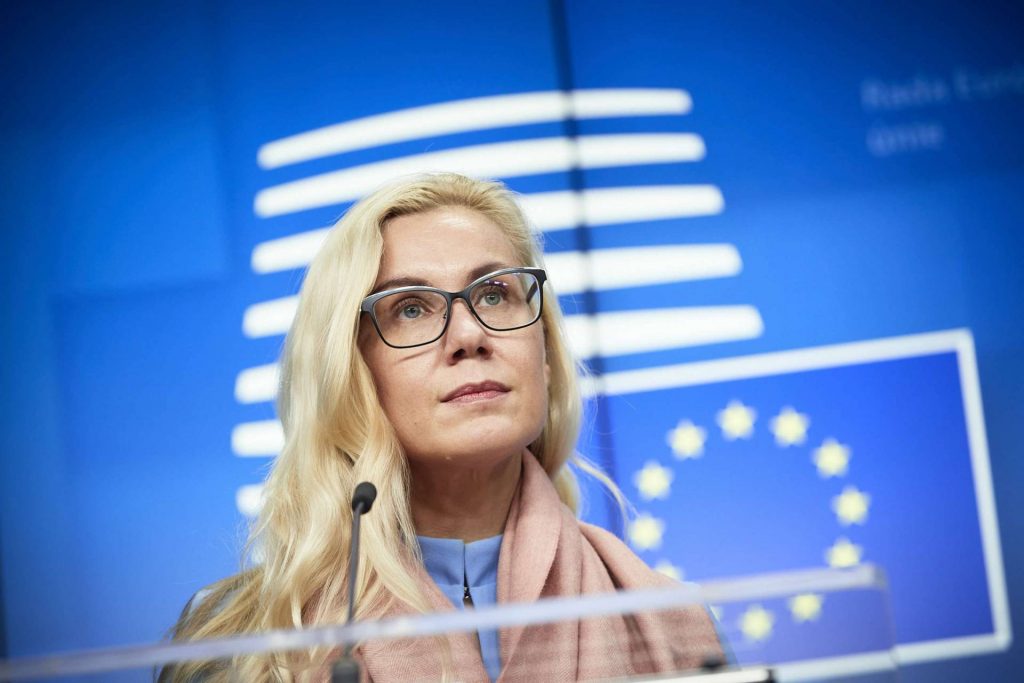
17/10/2022
EU Insight, 14 October 2022
Brussels, 14 October 2022
ENERGY MINISTERS DISCUSSED EMERGENCY MEASURES
Energy Ministers met in Prague to discuss emergency energy measures. As outlined by the EU Energy Commissioner Kadri Simson, the upcoming proposals should include i) certain measures to bring down gas prices; ii) joint purchasing of gas to fill storage facilities ahead of winter 2023; and iii) a common cap on gas price used for electricity generation. Commissioner Simson stated that the Commission plans to issue its proposal for measures to tackle high energy prices on 18 October. However, internal disagreements within the Council may have led to the deferral of discussions to the EU leaders’ Summit at the end of next week, which could postpone the proposals by the Commission.
EU SECURES ADDITIONAL FUNDING FOR EUROPE’S RECOVERY AND SUPPORT FOR UKRAINE
The Commission raised a further €11 billion through the sale of new bonds under NextGenerationEU. Newly raised funds will be used to support both Ukraine’s resistance and Europe’s recovery. Overall, since the start of the programme in June 2021, the EU has issued a total of €157.6 billion in long-term funding. In addition, the Council adopted a package of legislative changes that would allow EU Member States to finance a wide range of actions to support people fleeing the war in Ukraine. The new financing should cover measures ranging from providing first reception and accommodation to ensuring refugees’ access to healthcare and the labour market.
THE COMMISSION RECOMMENDS CANDIDATE STATUS FOR BOSNIA AND HERZEGOVINA
The Commission adopted its 2022 Enlargement Package, providing a detailed assessment of the state of play and the progress made by the Western Balkans and Turkey on their respective paths towards joining the European Union. The package focused on implementing fundamental reforms and included specific guidance on reform priorities for Montenegro, Serbia, Albania, North Macedonia, and Kosovo. The Commission also recommended granting Bosnia and Herzegovina candidate status, given steps in reinforcing democracy, rule of law, fight against corruption and organised crime, and freedom of the press. The Council will consider the Commission recommendations and take decisions on the steps ahead.
AGREEMENT ON ADAPTING EU STANDARDISATION RULES
The European Parliament and EU Member States reached a political agreement on standardisation rules. The new rules aim to improve the governance and integrity of the European standardisation system, particularly to help manufacturers ensure the interoperability of products and services, reduce costs, improve safety, and foster innovation. In addition, the rules aim to make European standards fit for the green and digital transitions with a specific focus on the protection of data in artificial intelligence and in the roll-out of investment projects such as hydrogen or batteries. The European standardisation organisations will have six months to implement the mandatory changes.
PARLIAMENT BACK TRADE ANTI-COERCION INSTRUMENT TO PREVENT ECONOMIC BLACKMAIL
Members of the European Parliament responsible for trade backed a new tool for the EU to respond to third-countries seeking to coerce it or member states. The new tool should protect the EU’s strategic and economic interests by helping the EU to retaliate in case it or any member state experience economic blackmail by a non-EU country to a particular policy choice or stance. Possible EU responses as part of these new tools include, for example, a suspension of tariff concessions or of certain international obligations the EU has towards the non-EU country.
COMING UP NEXT WEEK
- 17-19 October: European Parliament Plenary. On the agenda: Commission Work Programme 2023, European Council preparation, Bulgaria and Romania Schengen accession.
- 17 October: Foreign Affairs Council. On the agenda: Russian aggression against Ukraine, China.
- 17-18 October: Agriculture and Fisheries Council. On the agenda: Baltic Sea total allowable catches, Agricultural issues, Market situation following Ukraine war.
- 18 October: College of Commissioners Meeting. On the agenda: Commission Work Programme 2023
- 18 October: General Affairs Council. On the agenda: European Council preparation, Conference on the Future of Europe. Rule of Law in Poland, Electoral Law.
- 20-21 October: European Council Summit. On the agenda: Ukraine war, Energy Crisis, Economic Situation
- 20-21 October: Informal Meeting of Transport Ministers. On the agenda
Karl Isaksson, Managing Partner Brussels, Kreab
____________________________________________________________________
Kreab • Tel: +32 2 737 6900 • karl.isaksson@kreab.com • www.kreab.com/brussels • Twitter: @KreabEU.
